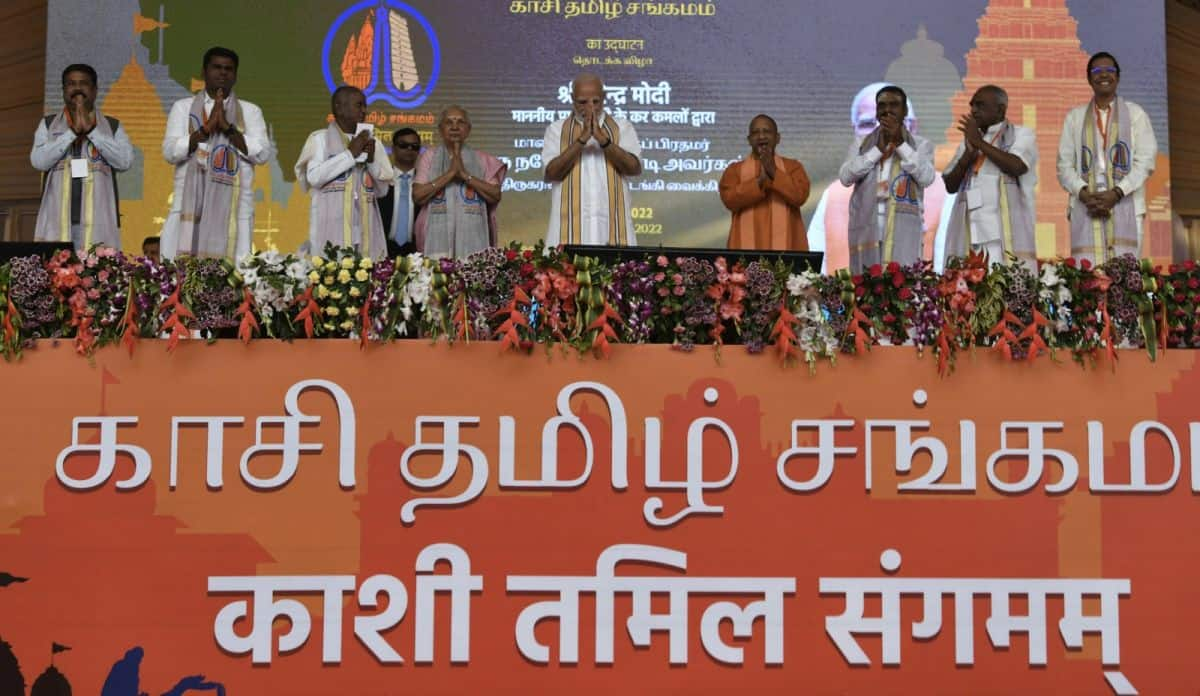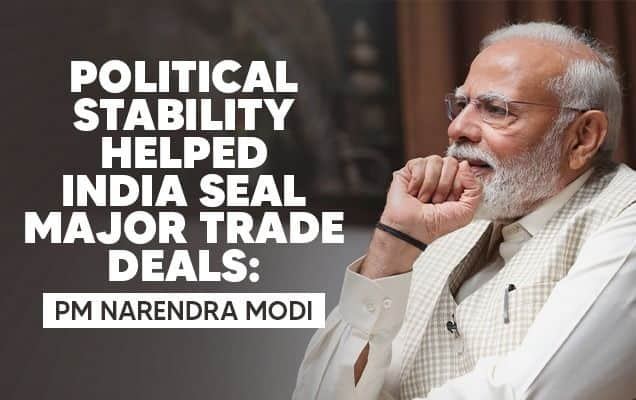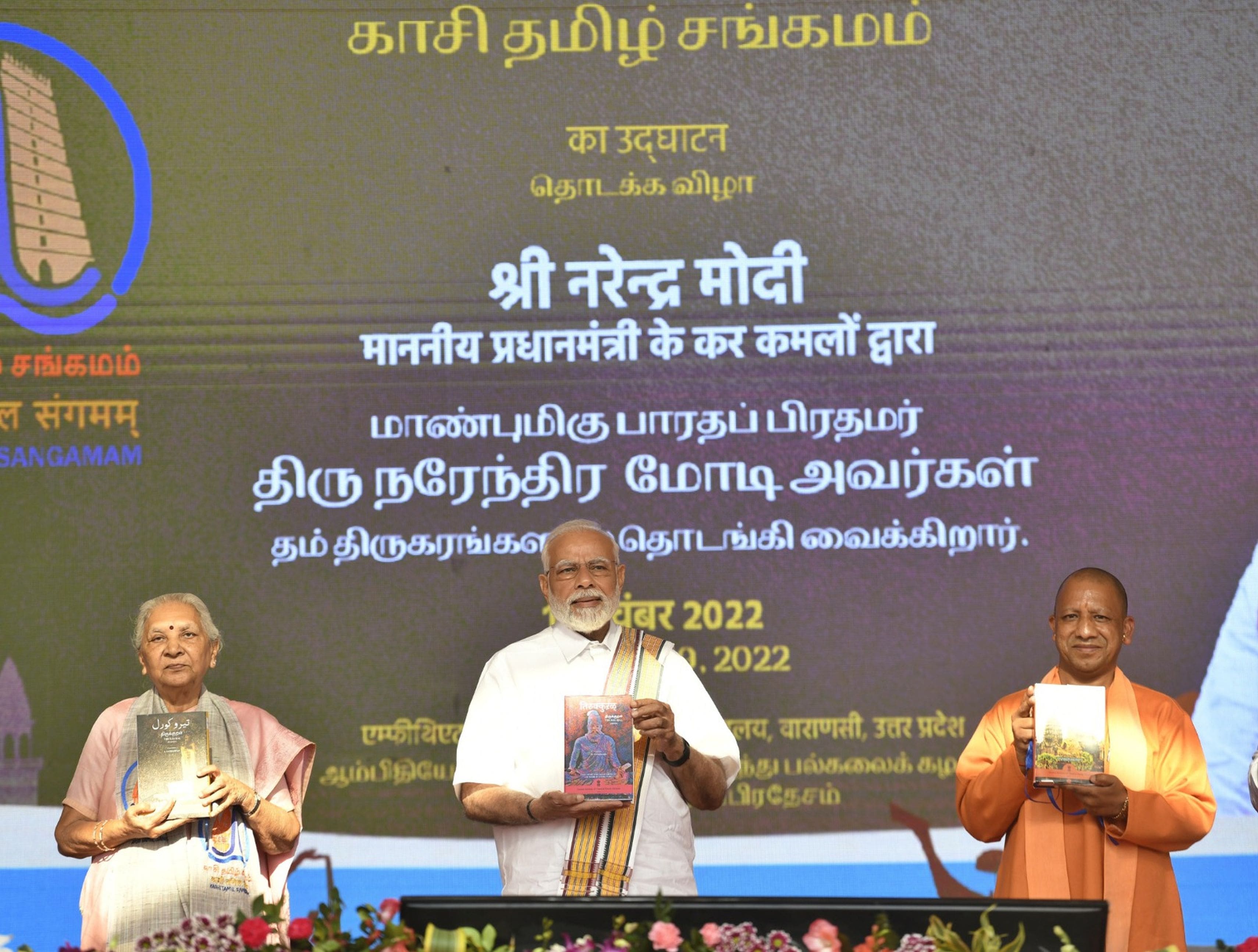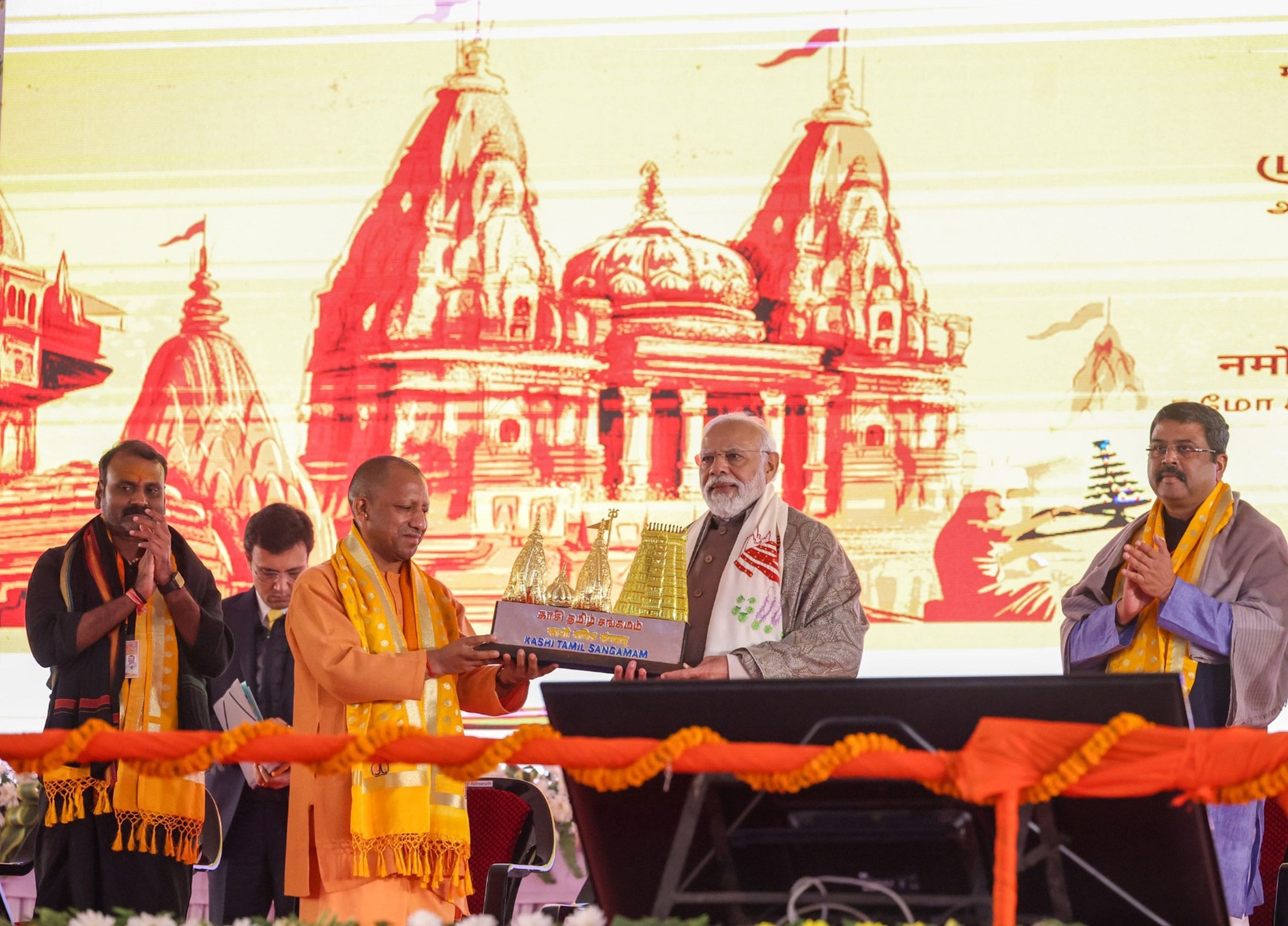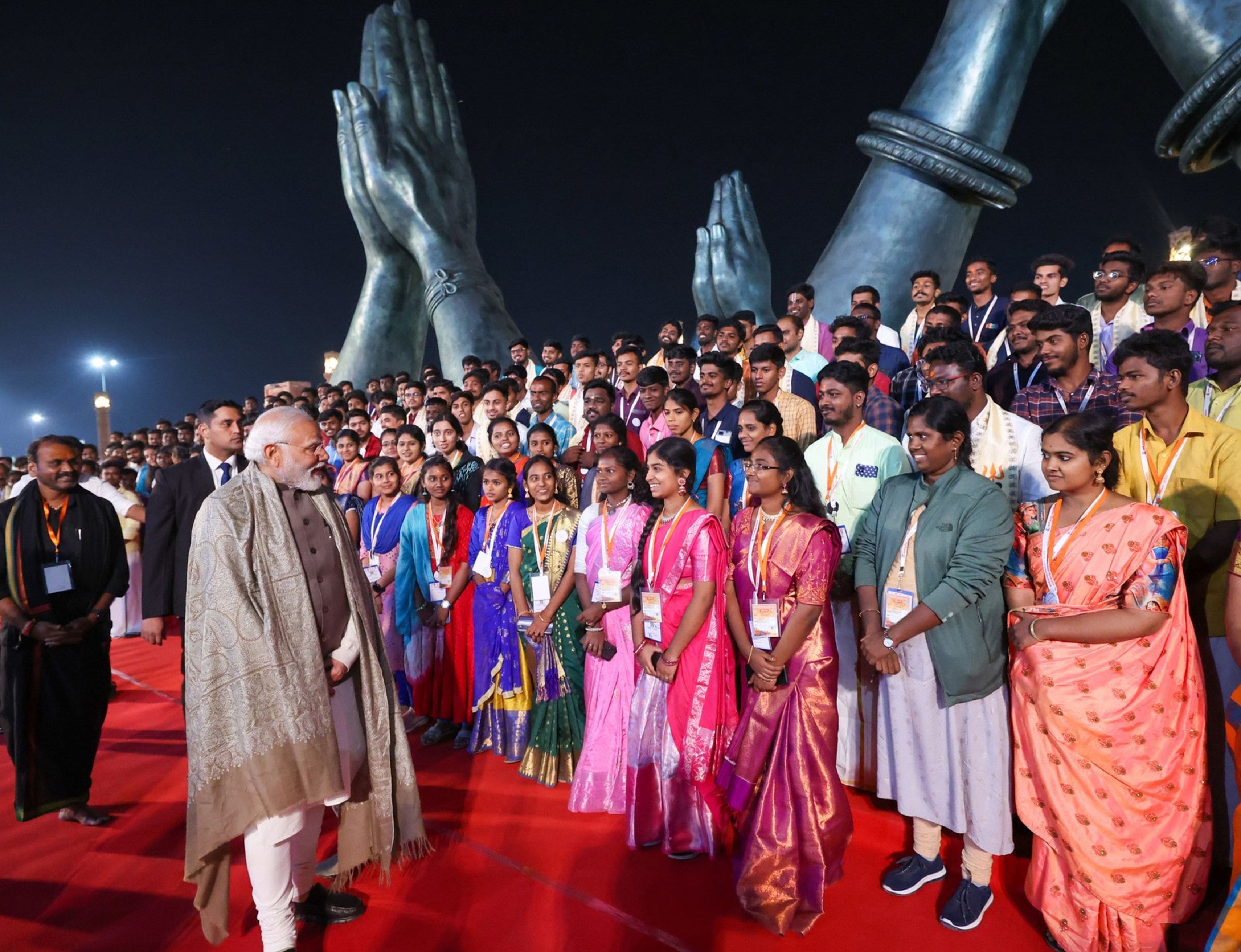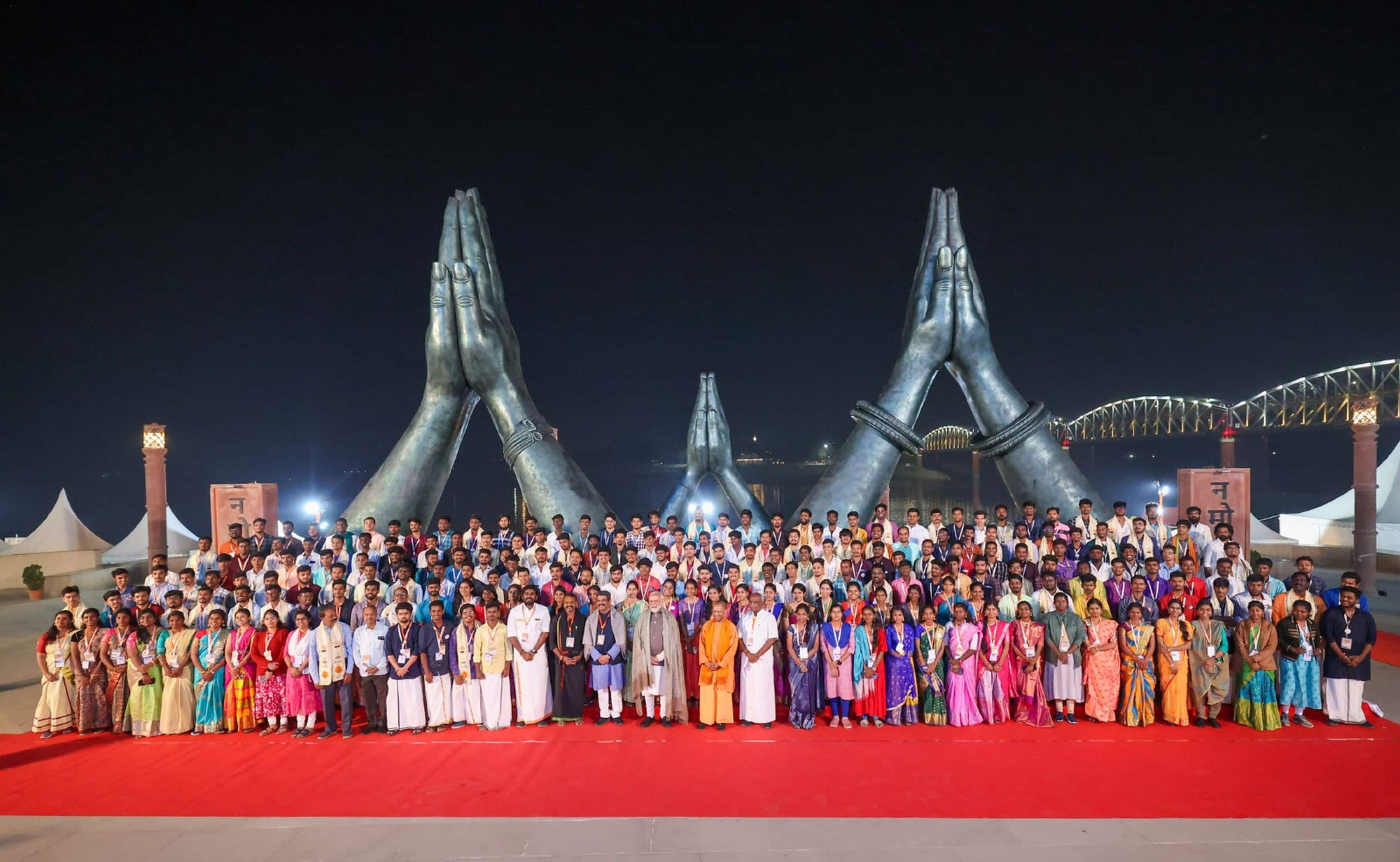Dear Friends,
On his Punya Tithi, I bow to the proud son of India, Dr. Babasaheb Ambedkar.
When we look back at the life and times of Dr. Babasaheb Ambedkar, we will see that his is a story of unmatched determination, an unbreakable commitment towards social justice and the courage to overcome every obstacle in pursuit of fulfilling the goal. Coming from the lowest strata of society meant that he was subjected to various forms of insults and difficulties but none of that deterred him from his larger pursuits, which was education and later on to work for the people. He gained a reputation as a bright lawyer, scholar, writer and an intellectual who was never shy to speak his mind.
We remember Dr. Ambedkar for his monumental contribution in drafting our constitution as the Chairman of the Drafting Committee. Later on, he served as Independent India’s first Law Minister.
Today is a day to remember the ideals, values and commitment towards social justice that Dr. Ambedkar stood for and to reaffirm our commitment to live up to them and ensure that we can create the nation of Dr. Ambedkar’s dreams, a nation where a human being is viewed not through the prism of what section of society he or she belongs to but through his or her service to society at large.
If there was one thing that was very dear to Dr. Babasaheb Ambedkar, it was equality. Today, so many years after Independence have we been able to guarantee social, political and economic justice to the marginalized sections of society? A lot more has to be done in this regard. It is up to us to ensure that no single person is left behind in our journey towards progress. No act or reform would be complete till it has touched the poorest of the poor. We should focus on enhancing education opportunities, that would give the marginalized sections of society the power to stand on their feet and back it up with a spirit of enterprise, that would give them the confidence to pursue their dreams and aspirations in whatever field they like.
Dr. Ambedkar and the other luminaries of the Constituent Assembly gave us one of the most comprehensive constitutions in the world. Today, let us reiterate our dedication to preserve the spirit and ethos of the Constitution Dr. Ambedkar gave us.
Here, I would like to focus on two areas that have suffered over the last decade.
The first is India’s Federal Structure. Dr. Ambedkar envisioned a federation where the rights of the states are sacrosanct and where the Centre and the States work together for the development of the nation. He viewed the separation of powers as the guiding light of our federal structure.
Sadly, we have seen repeated attempts to trample over the nation’s federal structure by the Central government. Just a few days ago, I wrote to the Prime Minister against the Communal Violence Bill and how it violates the Federal Structure. This was not the first time I wrote a letter to the PM on the issue of violations in the federal structure. The proposed NCTC and theamendments to the Railway Protection Force Act were also serious attacks on the nation’s federal structure.
The second issue is that of freedom of speech and expression. Under the inspiration of Dr. Ambedkar, our Constitution guarantees every citizen of India the freedom of speech and expression. Yet, those in power are not only insensitive to public opinion but have also brazenly attempted to silence negative opinions, while doing precious little to encourage diversity in opinion. Ironically, it was two years ago, on this same day that an enlightened UPA Minister had ‘warned’ social media sites. Any shade of opinion, any voice that speaks against the rulers of Delhi is methodically silenced. From opinion polls to adverse media reports, nothing is sparred. One sincerely hopes that this mindset among those ruling in Delhi changes.
Let us remember Dr. Ambedkar, join hands and strive to create the India he dreamt of!
Yours,
![]()
Narendra Modi







